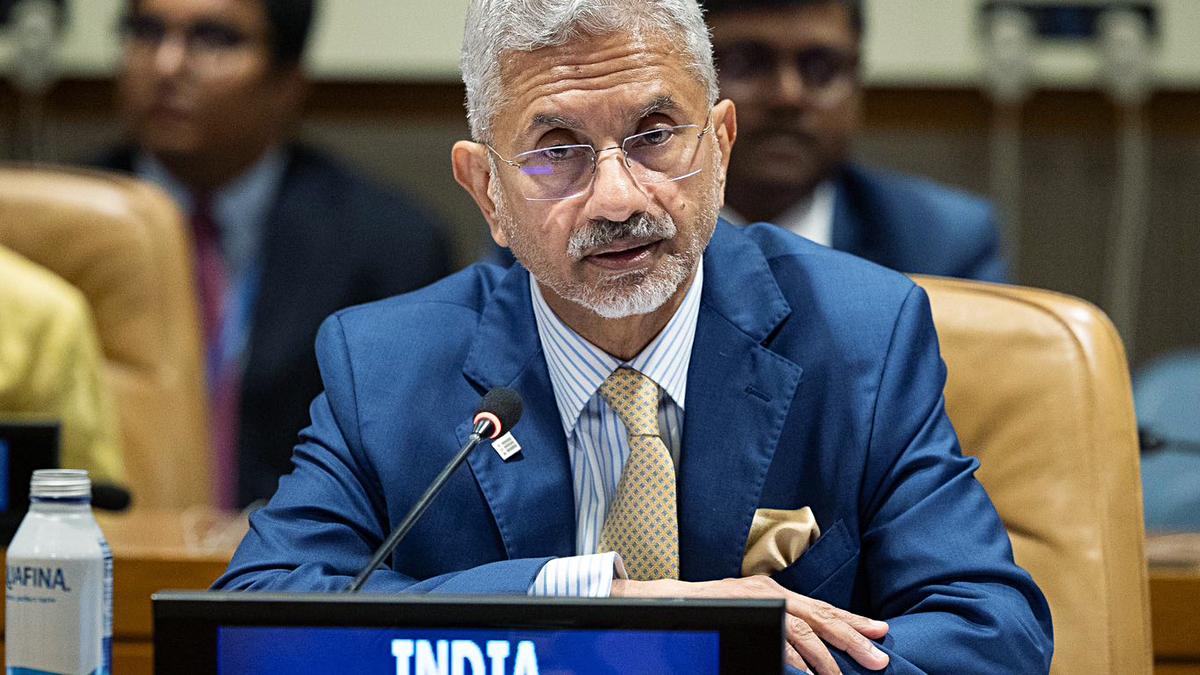India’s External Affairs Minister, S. Jaishankar, recently emphasized the significant role that BRICS (Brazil, Russia, India, China, and South Africa) plays in promoting multipolarity in international relations. His remarks highlight how the five-nation bloc is challenging traditional power structures and enhancing the influence of emerging economies on the global stage.
BRICS: A Platform for Diversity and Collaboration
Jaishankar pointed out that BRICS has evolved into a crucial platform for advancing diversity in global governance. This bloc is shifting the world away from unipolar (dominated by one power) or bipolar (dominated by two powers) systems, promoting a more balanced and inclusive approach to international relations.
Promoting a More Inclusive Global Order
The External Affairs Minister emphasized that BRICS plays a key role in fostering an inclusive and representative global order. By promoting the interests of developing nations, BRICS ensures that emerging economies have a stronger voice in shaping global governance. The cooperation among these nations spans various fronts, including:
- Economic collaboration: BRICS nations work together to enhance trade, investment, and financial stability.
- Political alignment: The bloc fosters cooperation on international political issues, allowing member nations to present a united front.
- Security issues: BRICS nations collaborate on security concerns, ensuring regional and global stability.
Challenging Existing Power Structures
Jaishankar highlighted BRICS as a collective force aimed at challenging traditional power structures that have long been dominated by a few countries. The organization seeks to shift global governance towards a more multipolar system, where emerging economies can actively participate in decision-making.
Future Role of BRICS in a Multipolar World
As the world continues to move towards a multipolar system, BRICS is expected to play an even more influential role. By shaping international policies and frameworks, the bloc will continue to promote greater collaboration and representation for the developing world.
Multiple-Choice Questions (MCQs):
1. What did S. Jaishankar emphasize about BRICS in a recent meeting?
a) It supports a unipolar world.
b) It promotes a multipolar global order.
c) It focuses only on economic cooperation.
d) It is dominated by two major powers.
Answer: b) It promotes a multipolar global order.
2. Which countries make up the BRICS bloc?
a) USA, Russia, India, China, Brazil
b) Brazil, Russia, India, China, South Africa
c) UK, France, China, India, South Africa
d) Germany, Brazil, Russia, India, South Africa
Answer: b) Brazil, Russia, India, China, South Africa
3. According to Jaishankar, what role does BRICS play in global governance?
a) Promotes a unipolar system
b) Strengthens the voice of developing nations
c) Focuses exclusively on economic issues
d) Dominates global governance structures
Answer: b) Strengthens the voice of developing nations
4. Which of the following is NOT an area of collaboration for BRICS nations?
a) Economic cooperation
b) Political alignment
c) Space exploration
d) Security issues
Answer: c) Space exploration
5. How does BRICS aim to challenge existing global power structures?
a) By forming alliances with Western powers
b) By promoting a unipolar system
c) By enhancing the influence of emerging economies
d) By focusing on military expansion
Answer: c) By enhancing the influence of emerging economies
